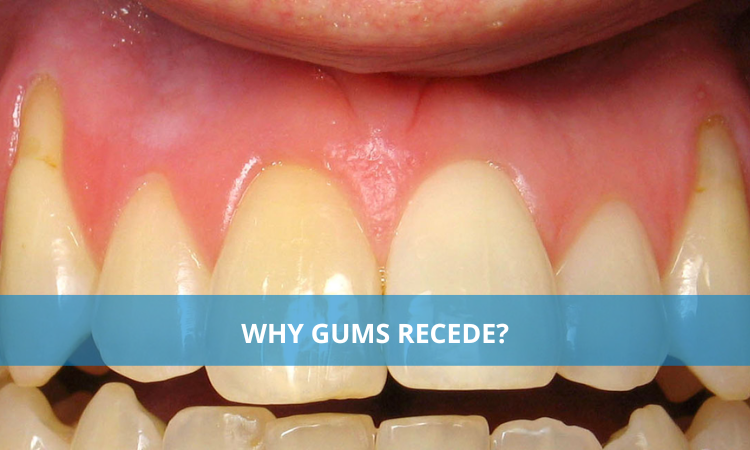
Learn what triggers gum recession and how to avoid it. Learn about gum recession treatments like scaling and root planing, gum grafting, and modifying dental hygiene practices. Maintain a healthy smile while safeguarding your gums.
When the gum tissue covering the teeth pulls back, more of the tooth and its root are exposed, which is a frequent dental health concern known as gum recession. Left untreated, this can result in sensitive teeth, increased tooth decay, and even tooth loss. To keep your mouth healthy, it's critical to comprehend the causes of gum recession and adopt preventative measures.
Causes of Gum Recession
· Genetics: Some people have a hereditary predisposition to gum recession due to traits like thin gums or a weakened immune system.
· Poor Oral Hygiene: Failure to brush and floss regularly can result in plaque and tartar buildup, which increases the risk of gum disease and gum recession.
· Aggressive Brushing: Recession can result from brushing too vigorously or from using a toothbrush with harsh bristles, which can harm the gum tissue.
· Bruxism (teeth grinding): Gum recession can be brought on by teeth grinding, which puts too much pressure on the gums and teeth.
· Use of tobacco products: Smoking or using smokeless tobacco products can injure the gums and hinder their ability to recover from injury or surgery.
· Hormonal Changes: Pregnancy-related hormonal changes, for instance, can raise the risk of gum recession.
· Certain Drugs: Some drugs, including those prescribed for high blood pressure and depression, might decrease blood flow to the gums and result in gum recession.
Prevention of Gum Recession
· Maintaining good oral hygiene includes using an antiseptic mouthwash, flossing once daily, and brushing and flossing twice daily.
· Visiting the dentist regularly for cleanings and check-ups can help identify and stop gum recession early on.
· Using a soft-bristled toothbrush and gently brushing your teeth can help you avoid harming the gum tissue.
· Gum disease can be prevented, and harmful bacteria can be removed from the mouth by using an antiseptic mouthwash.
· You may protect your gums from damage by giving up smoking and avoiding smokeless tobacco products.
· Putting on a mouthguard at night might help shield the teeth and gums from harm brought on by bruxism.
· A dentist or periodontist should be seen if gum recession is found to receive treatment and stop future harm.
Treatment for Gum Recession
· Scaling and root planing: This process involves cleaning the teeth and eliminating plaque and tartar from the surface of the roots.
· Gum Grafting: A gum graft may be required to cover exposed roots and stop additional damage in cases of severe gum recession.
· Changing Medications: Changing to a different drug may be essential if a particular medicine is causing gum recession.
· Modifying Oral Hygiene Practices: To stop additional gum recession, oral hygiene practices, including brushing and flossing, may need to be changed.
Conclusion
Gum recession can negatively affect oral health, but it can be avoided with proper oral hygiene habits and routine dental check-ups. To stop further harm, it's critical to get dental care as soon as gum recession is noticed. People may keep a healthy smile and safeguard their gums by being aware of the factors contributing to gum recession and taking preventative measures.


